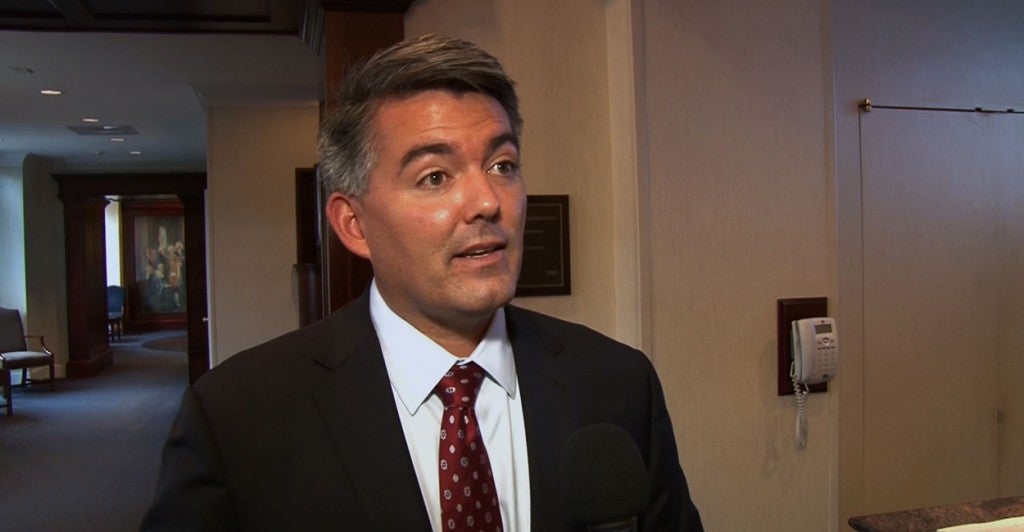According to Rep. Cory Gardner, natural gas production isn’t just beneficial to Americans back home.
The Colorado congressman’s home state is the fourth largest natural gas producer in the United States. Not only has the industry provided more than 90,000 jobs, but Gardner also argues that energy expansion has the opportunity to have a “real impact” on global security.
“Ukraine is reliant on Russia for their energy right now,” Gardner told The Daily Signal after speaking at The Heritage Foundation on energy exports and free trade. “The fact that we can send [liquefied natural gas] exports out of the United States and to Ukraine gives them another viable alternative for energy security, breaking the monopoly of Russian energy.”
To export natural gas, a company must first liquefy the gas at a liquefaction plant. The liquefied natural gas (LNG) is then shipped from an export terminal and delivered to a re-gasification import terminal to be stored or distributed by pipeline at the recipient location.
Even though domestic energy production over the past few years has provided a boost to the U.S. economy, critics of the Obama administration claim the federal government has constrained the economic benefits by significantly limiting companies’ ability to trade energy by delaying decisions on export licenses.
Those opposed to energy expansion argue domestic prices will increase and adversely affect American consumers.
As a member of the House Energy and Commerce Committee, Gardner has lead the conservative charge to allow companies to trade energy freely around the world. He’s now entwined in one of the most highly contested Senate races in the country against Democrat Sen. Mark Udall, and using his stance on energy production as a key policy issue.
This June,in a major boost for Gardner, the House passed a bill that would expedite the permit approval process for LNG exports.
Although the Senate announced it wouldn’t move forward with the legislation until after the August recess, Gardner said at Heritage, “The mere passage out of the House of Representatives sends a signal to the market—sends a signal to the world—that we are serious about energy security and energy opportunity.”
This fall, Gardner added, if the Senate and President Obama choose to ignore the opportunity to expand domestic energy production, “it will be the equivalent of hanging up on a 911 call from our friends and allies for help.”
